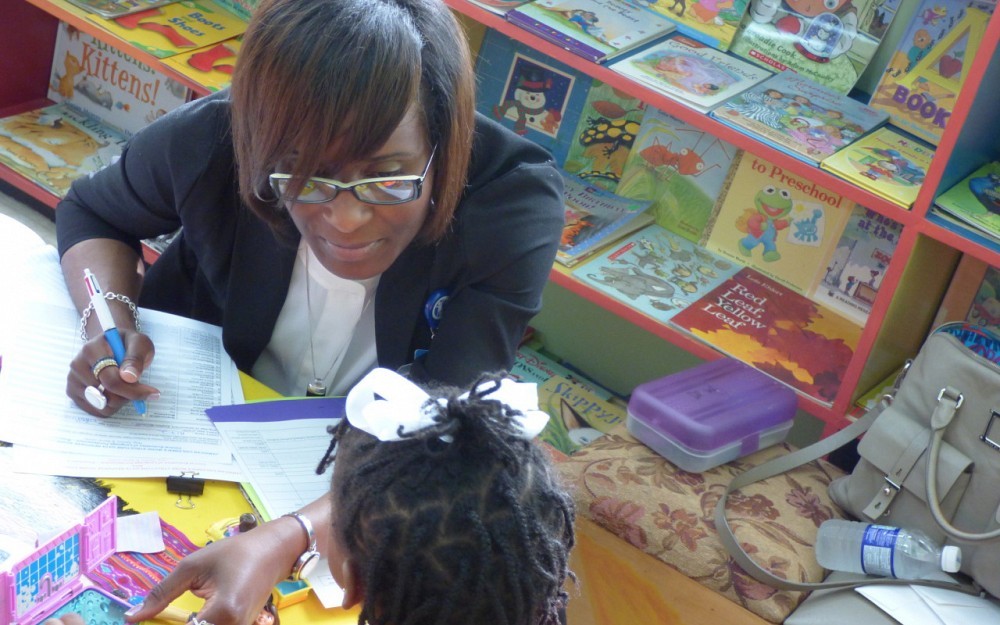
Allied Health Group to Spend Spring Break Assessing Creole in Jamaica
For many college students, spring break means putting down the books and backpacks and heading for the beach. For a handful of faculty and students in the Department of Communication Sciences and Disorders (CSD) in the College of Allied Health Sciences (CAHS) at the University of Cincinnati, this spring break will be spent conducting research on speech and language abilities of children in Jamaica as part of the program International Experience: Multilingual and Multicultural Experiences in Communication Sciences and Disorders.
Karla Washington, PhD, assistant professor and Erin Redle, PhD, adjunct assistant professor, both in CSD are leading a group of students on a service learning spring break trip in Kingston, Jamaica. This will be the fifth student trip Washington has led to work on the first-ever speech and language tool for Jamaican-Creole speaking children.
The trip consists of six undergraduate, Master of Speech Language Pathology, Doctorate of Audiology and PhD students in CSD. To prepare for the trip, the students take a semester-long course in the areas of research protocol, training in assessments and Jamaican culture.
The students spend a week in Kingston working in a preschool under the guidance of Washington and Redle, providing speech and language assessments for 3- to 5-year old children. This is part of Washington's research on the bilingual language acquisition of children who are raised speaking standard English and Jamaican Creole.
The speech and language tool, called an Intelligibility in Context Scale (ICS), is the centerpiece of Washingtons research and was previously developed in English by a group of Australian researchers. One of the researchers on that team, Sharon McLeod, is a colleague of Washingtons team on the project in Jamaica.
"Its a tool for parents to look at their perceptions of their childrens intelligibility across different listeners, says Washington. "There are seven questions that the parents are asked. Each question is rated on a five point scale, and the questions are the same in English and Creole.
The questions include:
Do you understand your child?
Do immediate members of your family understand your child?
Do extended members of your family understand your child?
Do your childs friends understand your child?
Do other acquaintances understand your child?
Research has found that culturally and linguistically diverse students in the United States are often misdiagnosed as having a language disorder when it is actually a language difference.
"Its not just unique to Jamaican Creole speakers, it would be unique to anyone speaking a language other than English where speech pathologists might erroneously use English-based norms to establish developments of a childs second language, says Washington.
According to Washington, one unique aspect of Jamaican Creole is that the nation has a history of slavery and English was a language of the masters while Creole was the language of the slave. That has changed over the years and Washington says currently Creole is a key part of the Jamaican identity.
"Jamaican Creole has traditionally been an oral language and only within the last 12 years has a standardized orthography (or writing system with the proper letters) been developed, says Washington. She says in the early 2000s, the Jamaican government passed a law protecting people from discrimination on the basis of language use.
"If you speak Creole you should not be disadvantaged in any way compared to a person who speaks solely English, Washington says. "By implementing that law, the government developed a language planning agency to document information about the two languages so there can be a peaceful co-existence between the two and not a tiered relationship.
The Jamaican Creole speech tool was accepted for publication in the American Journal of Speech and Language Pathology in November 2016, which Washington says is a major step in her research in that it allows her team to start publishing other papers.
"The next paper we want to work on is on the language side, particularly for grammar, Washington says. "There currently is not a sufficient tool to look at cross-linguistic development of bilingual children. Weve got lots of work that we can do, we just have to do it one step at a time.
Related Stories
4 steps to craft an outstanding graduate program application
July 2, 2024
Derrya Mathis, a graduate of the pre-occupational therapy program, shares her insights and experiences on successfully applying to graduate school.
UC study: Brain organ plays key role in adult neurogenesis
July 2, 2024
The University of Cincinnati has published research in the Proceedings of the National Academy of Sciences that found the choroid plexus and cerebrospinal fluid play a key role in maintaining a pool of newly born neurons to repair the adult brain after injury.
Put down that beer; it's not a tanning lotion
July 1, 2024
The University of Cincinnati's Kelly Dobos joined WVXU's Cincinnati Edition to discuss what's fact and what's myth when it comes to sunscreen use, different kinds of sunscreen and a social media recommendation to use beer on your skin to help get a tan.
